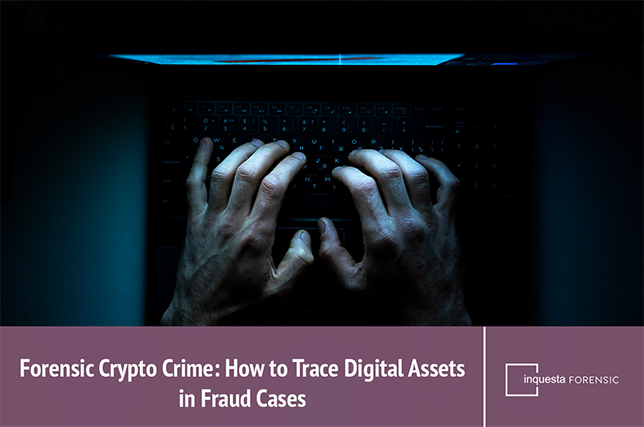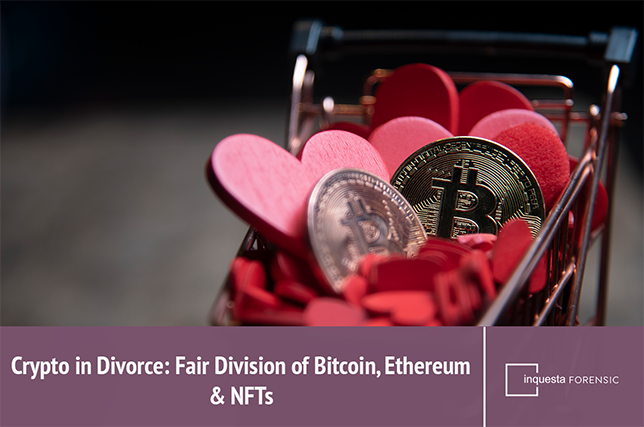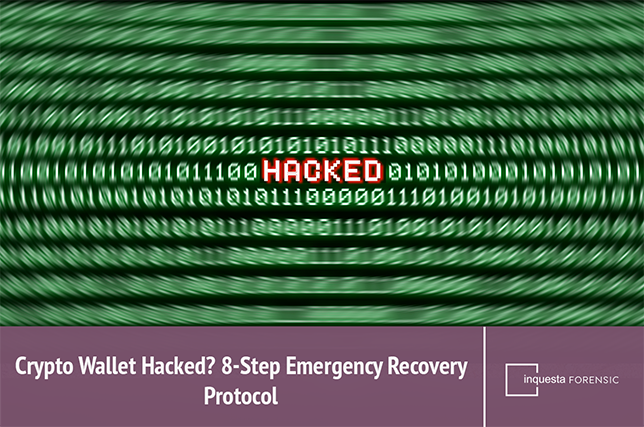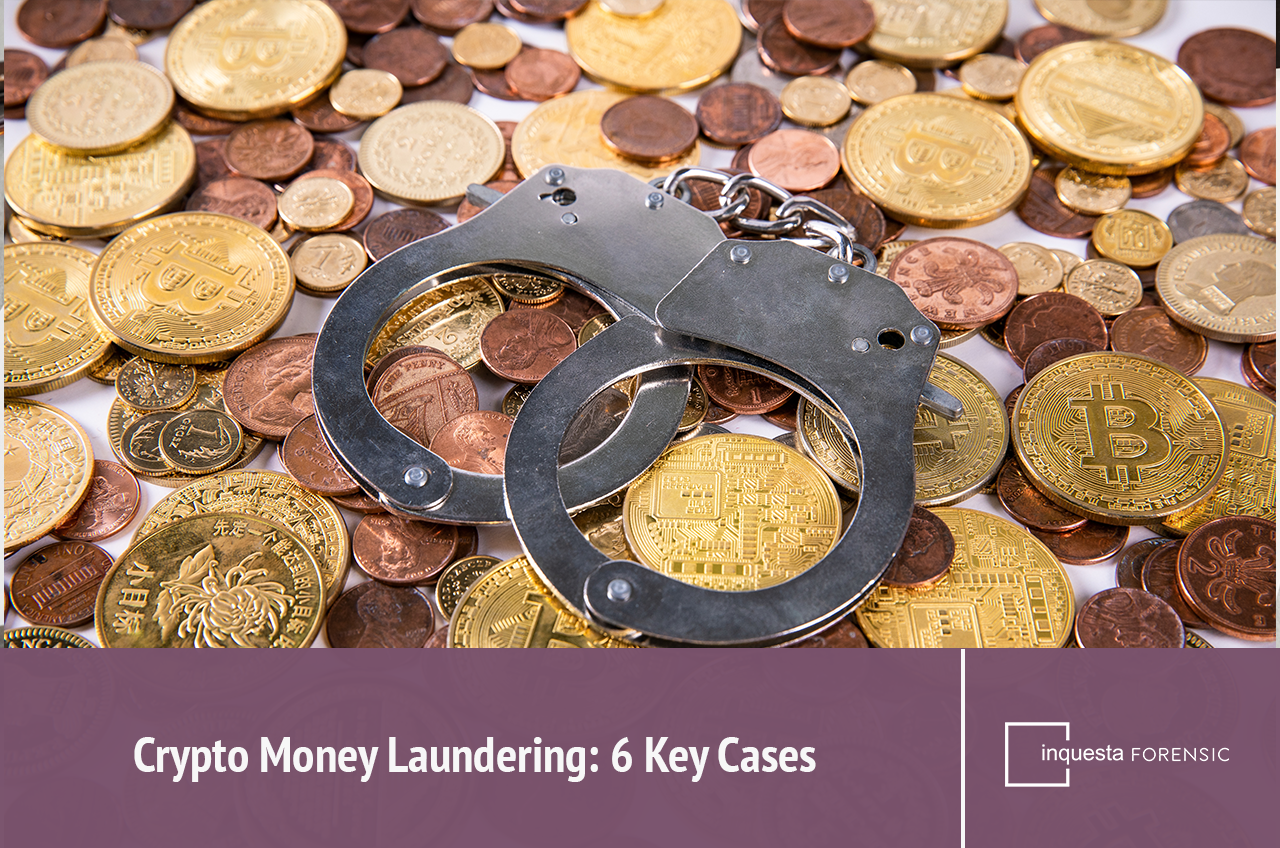Blockchain forensics is a growing field with a wide range of applications within the ever-evolving digital economy. It’s the art of deciphering the intricacies of blockchain networks, while offering a glimpse into the future of decentralised finance.
Join us as we delve deeper into Blockchain forensics, what it is, why it’s so important, what the challenges are, and how it can provide insights into the possible future of transactions and finance.
What is Blockchain Forensics?
Blockchain forensics is the craft of tracking, tracing, and monitoring transactions on blockchain networks. Compared to traditional transactions recorded in centralised ledgers, blockchain transactions are significantly more challenging to trace. However, utilising up-to-date tools and techniques, blockchain forensic experts, including forensic accountants, can analyse the data and trace the flow of funds, identify transaction patterns, and uncover fraudulent activities.
Blockchain forensics is, in essence, the process of piecing together the puzzle of highly complex and guarded digital transactions. By examining metadata, timestamps, wallet addresses, and transaction amounts, blockchain forensic experts can help to reconstruct the chain of events whereby funds were moved across a network. With this knowledge in mind, connections can be made that may prove vital in cryptocurrency fraud investigations, crypto defence, etc.
The blockchain forensic process requires the use of a number of specialist softwares, tools, and investigative methods — each of which are tailored to the unique characteristics of blockchain technology — making them perfectly suited to the task at hand.
Primary Goals of Blockchain Forensic Experts
The primary goals of blockchain forensics are to:
Prevent Fraud
A key aspect that makes blockchain technology so appealing to fraudsters is its anonymity and the difficulty with which transactions can be analysed and fraud can be spotted. For this reason, a lot of criminals will act with perceived impunity. However, this is not, in fact, the case.
Blockchain forensic experts are able to analyse transactions in order to identify any suspicious activities and intervene when necessary.
Ensure Regulations are Followed
Blockchain forensics can help when it comes to ensuring compliance with regulatory standards and best practices. Key regulations an expert in the field will need to comply with includes:
- Anti-Money Laundering (AML)
- Know-Your-Customer (KYC)
- Counter-Terrorist Financing (CTF)
- Sanctions Compliance
- Securities
- Tax Compliance
- Consumer Protection
Assist in Asset Recovery
In cases of theft, fraud, or any other cryptocurrency-based crimes, blockchain forensics can help to facilitate asset recovery by tracing stolen or misappropriated funds.
In collaboration with law enforcement agencies, forensic accountants can assist in identifying perpetrators of such crimes, locating stolen assets, and overseeing the initiation of recovery proceedings that aim to restore financial losses to the victims.
Support Litigation
Blockchain forensics can provide invaluable support in legal proceedings. Experts in the field, such as forensic accountants, particularly in cases of cryptocurrency-related disputes or litigation, can provide expert analysis, testimony, and evidence.
This acts to significantly strengthen legal cases, backing up the veracity of any claims, while ensuring as fair an outcome as possible for all parties.
Trace Transactions:
One of the core objectives of blockchain forensics is tracing the flow of funds across networks. Given the transparent nature of public blockchains, experts should be able to identify the origin, intermediary point(s) and destination of a transaction involving digital currencies.
This helps when it comes to reconstructing the chain of events and ultimately tracking the movement of funds.
Investigate Money Laundering
Digital currencies have emerged as an extremely popular medium for money launderers. This is a result of its near-anonymous nature and decentralised infrastructure.
Blockchain forensics plays an important role in investigating money laundering by helping to trace the flow of ill-gotten gains and gather important evidence for legal proceedings to take place.
What Makes Blockchain Forensics so Important?
With cybercrime and financial fraud on the rise nowadays, blockchain forensics plays a pivotal role in safeguarding the integrity of a number of transactions, protecting them against illicit activities and crime.
A blockchain forensic expert can provide a crucial additional level of defence against malicious threats. They can support investigations to trace transactions, identify potentially suspicious characters, and gather actionable evidence of legal proceedings.
Whether you’re dealing with the intricate webs of a Ponzi scheme, tracing stolen funds, or attempting to provide compliance with regulatory standards, blockchain forensics empower experts, such as forensic accountants, to navigate the complexities of digital finance with added precision and confidence.
A blockchain forensics expert will also be able to assist in assessing the proceeds of crime. They do this by analysing transaction patterns in an attempt to identify the flow of illicit funds. This expertise can be vital in the tracing and recovery of illegally obtained assets, ensuring accountability as well as supporting the legal process.
What are the Challenges of Blockchain Forensics?
Some of the key challenges of blockchain forensics include:
- Anonymity: As highlighted in this blog, while blockchain transactions are transparent, identifying the real-world identities behind wallet addresses can be tough. This is particularly true in cases where users have employed privacy-enhancing techniques.
- Data Privacy Concerns: Forensic accountants must carefully navigate the legal and ethical considerations that can come into force regarding data privacy and confidentiality when investigating on public blockchain networks.
- Rapid Technological Advancement: Blockchain technology, and associated digital currencies/transactions, are constantly evolving. Successful investigation will likely require a forensic expert to keep pace with these advancements in order to stay abreast of the latest developments and techniques.
- Challenges of Jurisdiction: Another complex aspect of the process of blockchain forensics is that cryptocurrency transactions transcend traditional geographic boundaries. This poses significant jurisdiction-related challenges for law enforcement agencies and regulatory bodies.
Regardless of the challenges involved, blockchain forensics still remains a powerful tool in the fight against financial crime, offering near-unparalleled transparency and traceability within the realm of digital currency.
Ultimately, blockchain forensics provides investigators with the crucial tools and techniques needed to unravel the many mysteries that can arise during cryptocurrency transactions. As digital currencies continue to reshape the financial landscape we all use every day, the importance of blockchain forensics cannot be overstated.
Seasoned Support in a Growing Field
Just because digital currencies are still in their infancy does not mean that expert guidance is inaccessible. Within the challenging and highly complex world of cryptocurrency investigations where every transaction could hold the key to unlocking the truth, selecting a reliable partner is paramount.
At Inquesta Forensic, we embody a consistent commitment to excellence, integrity, and an unwavering dedication to supporting the needs of our clients. With a proven track record of success across a wide variety of specialities, we can act as your allies in the pursuit of justice,
Choose Inquesta Forensic and allow our team of blockchain forensic experts to guide you among the ever-evolving landscape of digital finance. Trust in our experience and expertise and let us help you to navigate the complexities of blockchain forensics with precision, diligence, and dedication. Contact us today and find out more about how we can help you.
- Your Partner’s Been Convicted: Can They Take Your House? What Section 10a POCA Means For You
- The Essential Role of Forensic Accounting in High Net Worth Divorce
- How to Value a Startup Business: A Guide for UK Entrepreneurs
- Pig Butchering Scams: Guide to Crypto Romance Fraud
- Shareholders’ Disputes: How Business Valuation Helps with Shareholder Dispute Resolution











